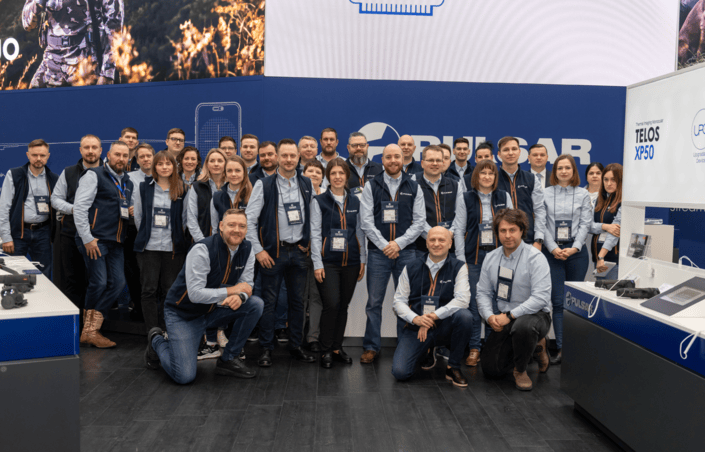The last 5 years have brought many uncertainties to the manufacturing industry. We’ve observed how the COVID-19 pandemic, geopolitical tensions, trade disputes, and other disturbances have increased energy costs and caused significant disruptions in global supply chains, leading to delays, higher costs, and shortages of key components. European manufacturers have also seen growing competition from low-cost manufacturers in China, Vietnam, Indonesia, and other Asian countries.
Manufacturing companies are embracing new technologies across their business processes to offset the negative economic and geopolitical factors, retain skilled employees, and differentiate. According to IDC, ICT spending in Europe is projected to reach $1.1 trillion in 2024, with further growth to $1.3 trillion by 2027, reflecting a compound annual growth rate of 5.3% over the 2022–2027 period. In 2023, the discrete manufacturing sector accounted for 10.7% of this spending. Based on current trends, this sector's share could rise to approximately $139.1 billion by 2027.
Companies invest in smart manufacturing, advanced technologies, and data-driven solutions to optimize manufacturing operations, increase productivity, improve quality, and foster greater flexibility. The key technologies include:
- Industrial Internet of Things (IIoT)—to reduce machine failures and enable real-time data collection, communication, and analysis across the entire production floor
- Automation and robotics—to streamline repetitive or hazardous tasks
- Digital twins—to simulate and optimize manufacturing operations in real time without disrupting the actual production line
- Cloud computing—to enable enhanced collaboration, remote monitoring, and centralized control across global manufacturing networks
- Data and AI solutions—to diminish machine downtime by detecting equipment issues, predict outcomes, optimize processes, and make informed decisions
Looking ahead, Yukon Group, a leading global developer of multispectral imaging solutions, commissioned Brimit’s team to help them update existing sales, service, and marketing operations.

Understanding the customer

Streamlining distributors’ work
Yukon delivers its goods through a well-developed network of distributors, who play a crucial role in promoting and selling the products to the end customers. The company manages complex sales, service, and marketing processes and maintains related documentation such as invoices, purchase orders, RMA forms and marketing materials. Given the distributors' central role in these processes, Yukon needed to establish clear and transparent channels of communication with them to ensure seamless collaboration.
Originally, Yukon used emails, phone calls, and Excel files to facilitate communication. This approach worked well with the company’s initial number of distributors and order volumes. With the growing sales numbers, the process put a lot of pressure on Yukon’s sales, after-sales, and marketing departments. To sustain the growth, it has been necessary to simplify the process for the distributors as well and provide them with up-to-date information and self-services.
The Brimit team implemented a distributor portal to streamline and accelerate Yukon’s sales and marketing operations.
The portal incorporates several modules to support commercial efforts. The portal equipped distributors with the Order Module, adding necessary visibility and efficiency to the entire ordering process. The Yukon sales team now requires less time to prepare a monthly order for the production floor, while the distributors are provided with greater transparency regarding what will be delivered and can plan their sales activities accordingly. In addition, after each shipment the customers are notified immediately about the shipment and get access to the shipping documents.
The After-Sales Service Module gave the distributors the information they needed to provide superior customer service. The portal surfaces history of each product sold, manages placement of RMA requests, and shows information about delivery times for repaired and replaced products, allowing distributors to request device repairs and track the progress of their cases.
The Marketing Module allows Yukon’s marketing team to efficiently collaborate with distributors on joint marketing plans. The portal enables both parties to plan marketing activities, set budget limits, and track expenses, as well as share documents, required for marketing activities.
Brimit leveraged the company’s existing SharePoint licenses to build the distributor portal, integrating it seamlessly into Yukon’s internal processes and systems.
The newly implemented software has garnered positive feedback from the customer, particularly for its intuitive interface and the automation of previously manual tasks, which have significantly streamlined Yukon’s daily operations. The distributors adapted to the system swiftly, reporting noticeable improvements in workflow efficiency, real-time data access, and enhanced collaboration with the customer’s team. Multiple departments at Yukon highlighted the software’s ability to reduce errors and boost productivity. While there were initial concerns about the learning curve, the training sessions Brimit provided effectively facilitated a smooth transition. Overall, the portal has been recognized as a valuable asset that plays a key role in the customer’s digital transformation efforts.

Modernizing sales and services
For most manufacturing companies, an ERP is a core product that defines the rest of IT operations. It is often difficult to choose between a proprietary product or an off-the-shelf ERP from a vendor. Off-the-shelf ERPs require less implementation time and enforce industry-standard business processes across an organization. Custom products, on the other hand, normally involve more time and investments initially, but they allow business operations to be tailored to meet customers’ unique needs.
Due to its complex production, sales, and distribution processes, Yukon chose the proprietary product path. Back in the day, they started building a FoxPro-based desktop application to support their production and sales process. Over time, the application grew into a solid distributed system with several applications, modules, and databases. Eventually, however, it became clear that the entire system needed to be modernized and re-platformed to a cloud web platform to overcome performance issues, as well as to:
- Eliminate legacy technology risks
- Build a future-proof solution
- Facilitate real-time collaboration
- Enhance security and compliance
- Improve user experience
- Provide a platform for continuous improvement and innovation
Managing documentation for a complex system developed over a decade ago has always been challenging. As a result, our team had to collaborate closely with the customer to reverse-engineer many of the system's functions and processes. These efforts enabled the Yukon team to review and improve several processes, ultimately making them more efficient.
Yukon uses many Microsoft products, including the Azure platform, so the choice of a new platform was obvious—the new solution is built on the Azure cloud stack.As a first step, Brimit’s team reworked the Sales Module in the customer’s ERP. To rebuild it, our team put a lot of effort into setting up architecture that would allow the rest of the system to be restructured. Having the right architecture in place and reusing components from the previous module allowed our team to deliver the Service Module with less effort.
Re-platforming was implemented in close collaboration with Yukon’s development team. Brimit helped Yukon developers understand the new technology stack, ensuring they had the necessary skills to maintain and support the system once the primary implementation phase was completed.
The new platform enabled Brimit’s team to embrace DevOps practices and establish continuous delivery pipelines, accelerating the release of new features and allowing issues to be resolved much faster.
Brimit’s team implemented the new system in a way that allowed Yukon employees to use both the old and new applications concurrently. This approach enabled their team to work within both systems during the initial weeks, ensuring a smooth and gradual transition before fully migrating to the new platform.
Project Highlights
Implementing a distributor portal
Refining sales and marketing processes
Modernizing and future-proofing ERP on Azure
Accelerating ERP feature delivery and issue resolution
Upskilling the customer’s development team



